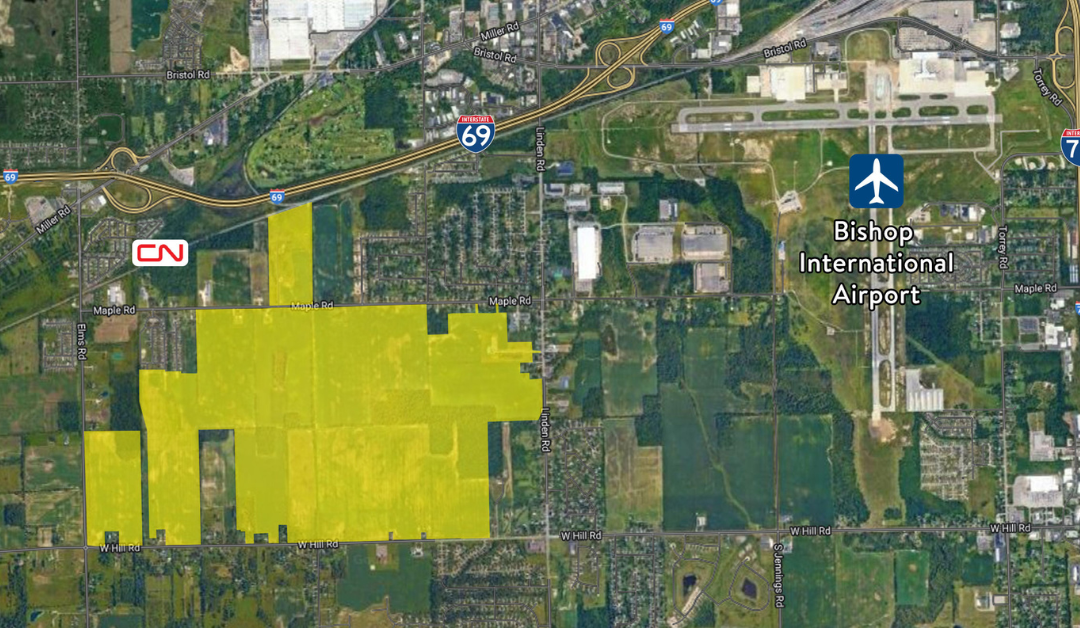
If a judge’s decision survives appeals, most workers would be set to receive $12 an hour for minimum wage.
Need to Know
- A popular proposal to raise the minimum wage to $12 could take effect after years of legal battles.
- In 2018, the Republican-led Legislature adopted the voter-initiated proposal, and amended the language in order to limit its impact. Now, a Court of Claims judge has ruled that doing so was unconstitutional.
- Appeals are expected and enforcement could be delayed, so don’t expect any change on paychecks immediately.
LANSING—Pay for minimum wage and tipped workers could spike in the months ahead, because of a new Michigan court ruling that said the state Legislature acted unconstitutionally when it hollowed out a popular citizen-initiated law in 2018.
Appeals are expected, but if the decision prevails, Michigan’s minimum wage would jump to $12 for both untipped and tipped workers, and employees would earn more sick time for each hour worked.
That had been the plan in 2018, when the citizen-initiated ballot proposal to raise the minimum wage to $12 by 2022 was taken up by the Republican-majority Legislature before it could make it to voters. The Legislature used a perfectly legal “indirect initiative” process to do so, but passed a separate package to severely weaken the sick time and wage increase. The Legislature’s move, deemed legal at the time, has been a matter of controversy for the past four years.
Now, it’s been ruled unconstitutional, per an order from Judge Douglas Shapiro of Michigan’s Court of Claims. His ruling would restore the original laws proposed by voters regarding both minimum wage and sick leave and eliminate the legislative amendments muffling those laws. It’s not immediately clear when the changes could take effect.
Workers shouldn’t expect to see the raise reflected in their next few paychecks though, as appeals are expected and might need to be settled before the change is implemented, said Sarah Coffey, the Michigan Restaurant Opportunity Center lead organizer for the MI Time to Care Campaign, a campaign to require sick time and raise the minimum wage. Several business associations indicated that they would like the ruling appealed and that its implementation, which is set to be a massive undertaking, should be suspended until the decision makes its way through the courts.
“I know it’s just a stop on a longer journey, but it really is just a fantastic day,” said Coffey, who helped organize the lawsuit against the state.
The minimum wage in Michigan is currently $9.87. After the state Legislature bypassed voters to adopt the citizen-initiated proposal, it passed subsequent legislation to limit sick time requirements and stretch the minimum wage climb over a number of years, diluting the package. After the 2018 elections, Gov. Rick Snyder, who was serving the last weeks of his term, signed the Republican package to strip the potency of the ballot measure.
If the Legislature had not voted for the minimum wage proposal, the question would have gone to a popular vote on the ballot.
Since then, the state’s minimum wage has crept up by about 20 cents a year, with a target of 2031 for the minimum wage to hit $12 an hour. The amount of sick time could accrue was also cut nearly in half, and more businesses were exempted than in the citizen-backed package.
“Just imagine if right before the pandemic, Republicans had not unconstitutionally subverted Michigan voters by adopting and amending this legislation,” Coffey said.
At the time, organizers said the Legislature’s move ran afoul of the state’s constitution, which in 1964, then-Attorney General Frank Kelly had read to mean that the Legislature could not adopt and then amend a voter-initiated proposal in the same two-year legislative session. Kelly’s reading in 1964 was widely accepted for almost 55 years, until in 2018 Attorney General Bill Schuette ruled the Legislature’s maneuver was fair play. The Michigan Supreme Court then declined to rule on Schuette’s decision.
Yesterday’s Court of Claims ruling restores Kelly’s precedent.
“In contrast, Attorney General Kelley’s opinion was issued within a year after the People ratified the Michigan Constitution and stood for 55 years,” Shapiro writes in the opinion. “Therefore, the Court concludes that Attorney General Kelley’s original opinion is entitled to more weight than Attorney General Schuette’s opinion.”
Both proponents and opponents of the decision expect appeals that could send the issue all the way to the Michigan Supreme Court. Wendy Block of the Michigan Chamber of Commerce said businesses could suffer with the sudden increase in wages.
“The talent shortage has employers already paying historic wages and benefits — all while facing rising inflation and supply chain chaos — just to keep the doors open,” Block said.
Meanwhile, workers have welcomed what the increase in minimum wage could mean to them for day-to-day life.
For tipped workers, like bartenders and servers, their wages could increase by more than $8 an hour, from $3.75 now to $12 an hour or more by 2024—an additional $64 over an average day’s shift as it currently stands. In 2022, the minimum wage for tipped workers would have been $9.60 under the proposal, with their wages would eventually catching up to the minimum wage for other employees.
The minimum wage would be slightly lower for employees under the age of 18, and every year, the minimum wage would be scaled to account inflation.
The service industry has struggled to fill open positions during the pandemic, leading to short-staffed restaurants and longer wait times; a threefold increase in wages may help, advocates say.
“This is actually going to provide workers who are considering shifting where they are making their money an incentive to stay in the restaurant industry,” Coffey said. “This is a huge win not only for workers but also restaurants in general.”
The Associated Press contributed to this report.
Politics

Michigan lawmakers look to break (another) state funding record for public schools
Democratic lawmakers are hashing out plans to bring state funding for Michigan’s public schools to another new, all-time high—and ensure teachers...

Mundy Twp. project gets state funding in effort to boost local manufacturing
More than $9 million awarded to a planned development project in Genesee County could provide a big boost to the local economy and help create...

It’s official: Your boss has to give you time off to recover from childbirth or get an abortion
Originally published by The 19th In what could be a groundbreaking shift in American workplaces, most employees across the country will now have...
Local News

More Michigan teens could soon take driver’s ed in their own schools
Privatization of driver’s education means that only 38 Michigan high schools offer affordable in-school driving classes for students. New grants...

That one time in Michigan: When we became the Wolverine State
How did Michigan become tied to an animal that's practically nonexistent there? Among the many nicknames that the state of Michigan has, arguably...





